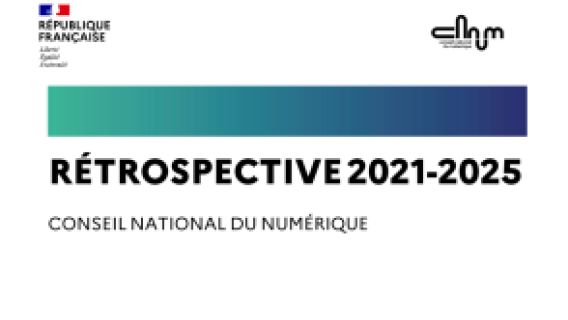Opinion on digital freedoms
Opinion No. 5-2013 of the French Digital Council on digital liberties
Opinion No. 2013-5 dated 6 December 2013
The French Digital Council has reviewed Article 13 of the draft defence planning law for the years 2014-2019.
While stressing the importance of protecting national security, safeguarding essential components of France’s scientific and economic potential, and preventing terrorism, crime and organised crime, the Council considers that, with the law as it stands, it is not appropriate, without extensive prior public debate, to modify the system established by the 2006 law on the fight against terrorism, which extends the mechanisms for accessing data, as well as the nature and purposes of data.
This finding must be seen within the context of a broader issue, namely the multiplication of laws that incorporate digital dimensions – including the draft law on defence planning, the draft law on equality between men and women, the draft law strengthening the fight against the system of prostitution and the draft law on consumption. It therefore implies cross-cutting thinking, both at parliamentary level and within the public, to identify the impact of such changes on the protection of fundamental freedoms.
The Council considers that these issues require prior consultation, which is essential and must be made systematic, especially among advisory bodies and independent administrative authorities, chief among them the Commission Nationale de l’Informatique et des Libertés (CNIL), as well as civil society.
Recent international revelations about widespread surveillance practices, facilitated by the massive collection of personal data by some platforms, have raised concerns. The digitisation of society, the economy and public life must not be hampered by uncertainty regarding the protection of the privacy of individuals and groups. We must strike a balance between comprehensive protection and individual protection. Digital society and economy must be built on foundations of trust.
In view of the above, the Council has decided:
-
to take up the issue of the protection of fundamental rights and freedoms profoundly changed by the digital revolution;
-
to start preparing, to this end, a broad consultation on these issues, including among international stakeholders, experts and, above all, members of civil society, with a view to achieving three objectives:
-
contribute to the framing of a future law on digital freedoms;
-
resume the debate on changes to the rules governing personal data in the European Union; and
-
foreshadow the signing of an international treaty governing monitoring systems and protecting fundamental freedoms;
The Council notes that France, thanks to the determination of its whistle-blowers at the time, was in 1978 able to establish a legal framework adapted to technological developments in its law on computing and freedoms, fully embodying the principle of free communication affirmed in Article 11 of the Declaration of the Rights of Man and of the Citizen of 1789, which provides that: “The free communication of ideas and opinions is one of the most precious of the rights of man. Every citizen may, accordingly, speak, write, and print with freedom, but shall be responsible for such abuses of this freedom as shall be defined by law.” We must resume and pursue this movement.




